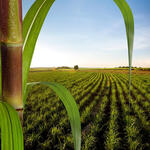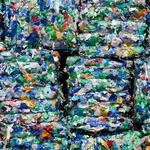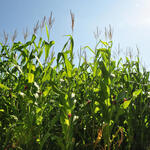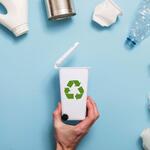- Date: 08 April 2022
Biodegradable and compostable plastic is becoming a more frequent option on store shelves as the demand for “green” products grows. Given the fact that a dump truck’s worth of plastic waste enters our oceans each minute, it’s not surprising that people are looking to use their purchasing power in ways that will presumably leave a smaller footprint.
The growing trend in plastic use is fueled by the assumption that if a product or its packaging is labeled as “biodegradable” or “compostable,” then it must be the more sustainable option. Unfortunately, that is not necessarily the case.
As the production of biodegradable plastics jumps from 1.5M metric tons to almost 5.3M in the coming years, understanding exactly how these materials are helping—or hurting—the environment is critical.
Let’s break down some of the common questions that can help clarify what biodegradable and compostable plastic mean for the environment:
- Date: 15 February 2022
- Author: Alix Grabowski, Director, Plastic and Material Science, WWF
We all know that plastic waste is a global crisis, but how often do you think about where plastic comes from?
Of all new plastic, 99% is made from fossil fuels like oil and natural gas, meaning the plastic that we use today starts trashing our planet long before it becomes trash. From the moment they’re made, these conventional plastics are contributing to climate change, degrading habitats, and threatening communities around the world.
Reducing, reusing, and recycling plastic are priority first steps in addressing the plastic crisis, but we cannot rely on these tactics alone. We will always need some new plastic to fill critical health and safety needs, but that new plastic does not need to be made from fossil fuels.
Plant-based plastic—also known as bioplastic or biobased plastic—comes from sources like algae, sugarcane, or used cooking oil, and can de-couple plastic production from the impacts of fossil fuels. However, plant-based plastic must be thoughtfully designed to build environmental, social, and economic resilience across ecosystems and communities. Over a decade ago, WWF realized that plant-based plastic and its sourcing was a cross-cutting issue that affected the habitats, wildlife, and people that we aim to protect. We convened the Bioplastic Feedstock Alliance (BFA) in 2012 to advance knowledge on this critical and complex topic and ensure that plant-based plastic reaches its potential to benefit nature and people.
- Date: 08 February 2022
Following the release of WWF's ReSource: Plastic Transparent 2021 report, we sat down with Lisa Morden, Vice President of Safety, Sustainability & Occupational Health at Kimberly-Clark, to discuss the company's involvement in the ReSource program, the importance of transparency, plus the greatest challenges and most promising solutions to the plastic waste crisis.
…
- Date: 08 December 2021
- Author: Erin Simon, Head of Plastic Waste and Business
Transparency is a critical piece to any corporate sustainability journey, as it raises the bar for accountability which in turn accelerates action. And for the plastic waste crisis, when corporate transparency is paired with cross-sector collaboration, we break down silos and unlock access to new data that sheds light into where and how companies can make the most impact on plastic pollution.
That’s why in 2019, WWF set out to find a way to expand transparency around plastic waste by launching ReSource: Plastic to ask – how can companies really make a difference on plastic waste? With the release of Transparent 2021, our second annual report from the ReSource program, we’re starting to be able to answer that question and it’s helping us fill in that “how” gap.
- Date: 17 November 2021
Can plastic made from plants solve the plastic pollution crisis? The answer is no, not exactly; but, plant-based plastic (also known as bio-based plastic or bioplastic) will play a role in charting a path towards circularity.
Plastic production and pollution have been growing for decades, with lasting impacts to ecosystems around the world, with no end in sight unless we change course today. Fortunately, we can, by transforming our broken linear systems into circular ones. This will require a multi-faceted approach, including a combination of strategies focused on plastic reduction, reuse, and recycling. One of the key outcomes we'll need to see is the shift away from fossil-based plastic which has been a key feature of the take-make-waste linear economy fueling the environmental crisis today.
Currently, 99% of new plastic is made from fossil fuels, meaning the plastic that we use today starts trashing our planet long before it becomes trash. From the moment they’re made, these conventional plastics are contributing to climate change, degrading habitats, and threatening communities around the world.
But, even the most functional of circular economies will still require some new plastic to meet our most critical needs, like keeping our foods fresh and our medications safe.
The good news is that there is a better path forward. Sustainable inputs – primarily, post-consumer recycled content and responsibly sourced plant-based plastic – will power circular economies. They can supply the material we need, but without relying on fossil fuels to produce new (or virgin) plastic. A strong supply of post-consumer recycled plastic in combination with responsibly sourced plant-based plastic, means we will no longer need to rely on fossil fuels to meet our remaining need for new plastic.
Plastic made from seaweed, sugar beets, or other plants can be an important part of the solution.
However, not all plant-based plastic is good for the environment. In order to serve as a truly sustainable alternative, the material must be thoughtfully designed to build environmental, social, and economic resilience across ecosystems and communities. WWF convenes the Bioplastic Feedstock Alliance, a multi-stakeholder working group formed by some of the world's leading companies to advance knowledge of bioplastics and their potential social and environmental impacts. The BFA has developed a shared sustainability assessment for plant-based plastics to help actors make thoughtful decisions about biobased plastic sourcing, and drive change at scale.
Responsibly sourced plant-based plastic must also look beyond the benefits at the point of sourcing, to consider what will happen to the plant-based plastic after it has been used. Waste management practices, including collection, recycling, and composting, must be in place to ensure that this type of plastic can be effectively recovered and recirculated through the plastic system, and not end up as waste.
WWF continues to lead the charge to help reimagine how we source, design, and reuse the plastic materials communities most depend upon. Plant-based plastics represent an opportunity to reduce the negative impacts associated with the traditional sourcing of plastic from fossil fuels, and perhaps even contribute to the local economies, ecosystems, and resilience of communities in which they're grown. But plant-based or fossil-based, plastic has no place in nature.
For more information, visit the Bioplastic Feedstock Alliance website here or check out WWF's Position on Biobased and Biodegradable Plastic.
- Date: 09 September 2021
Every day, plastic pollution is flowing into our natural environment at an unprecedented rate, with at least one dump truck every minute entering our oceans alone. It’s time to turn off the tap, together. We need everyone—industry leaders, policymakers, and everyday consumers—to play a role in transforming the broken systems by fixing how we source, dispose of, recycle, and reuse the plastics we need in our daily lives. The more we can coordinate these large-scale actions together, the more impactful we’ll be.




